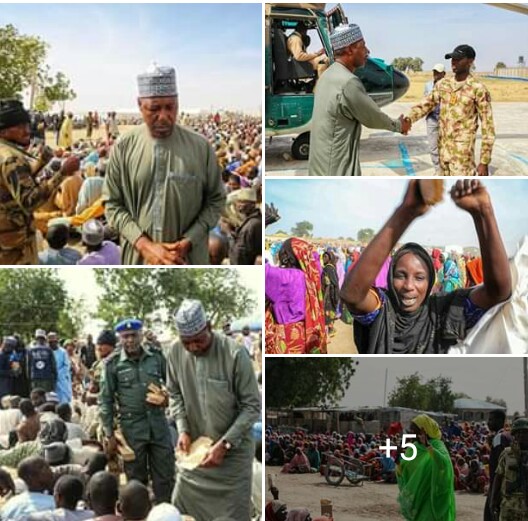
Borno State governor, Professor Babagana Umara Zulum, spent the most part of yesterday in Rann, headquarters of Kala-Balge, Local Government Area, remotely located around a boarder between Nigeria, Cameroon linking to Chadian territory.
Governor Zulum flew from Maiduguri to Kala-Balge on board a helicopter because it is currently impossible to access the LGA by road due to massive waterlog caused by discharge from a dam in Cameroonian territory in July 2019.
The Governor, who returned at night, supervised the distribution of N100m in cash to the residents in Rann, whose only option is to trek about 10 kilometres to border communities in order to buy food and other basic needs. Each of the 10,000 households in the community was given between N10,000 and N15,000 cash because there is no banking service. Zulum had to fly cash as last option.
Male householders received N15,000 each, while their female counterparts received N10,000 each.
More than 10,000 households in the agrarian community of Rann, have been trapped while crops planted last year were destroyed by a herd of 250 elephants sighted by UN Humanitarian Air Service (UNHAS) officials from their helicopter back in December 2019.
Farmlands still flooded cannot be cultivated by the residents forcing them to completely depend on aid transported to them through humanitarian air services.
Rann, largely populated by Borno’s Shuwa arabs, is considered Nigeria’s most severely disadvantaged local government headquarters. Despite 25 years of existence, Rann is usually inaccessible during rainy season as there is neither road nor bridge linking the council headquarters with the rest of Borno State. The council is also not connected to the national grid for electricity supply.
Tuesday’s was Governor Zulum’s third humanitarian visit to Kala-Balge since June 2019.
The Governor was in Rann on June 9 and December 8, 2019. In the first visit, he traveled by road before the flood while he flew by chopper in December. On both occasions, he supervised the distribution of food and non-food aid to residents, many of them in critical need of help.












